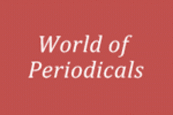An empirical analysis of glazed pottery from the site of Mansurah.
Abstract
Mansurah was the first Arab city established in the Indian sub-continent between 712–1025 AD by the Umayyad governor ‘Amr Thaqafi Built in the Shahdadpur of District Sanghar, Sindh. During this period, the Arab rulers extended national and international trade from Sindh. The spectroscopy was used to examine the excavated culture material and to find the origin of the glazed pottery. Empirical evidences drawn from the cultural material, highlighted the composition of color paste used on these broken vessels, that is prepared by using the sand of two different types of rocks such as volcanic and metamorphic. This study highlights the Arab-Sindh relations and several other Scio -cultural aspects of this specific phase of history of Sindh, Pakistan.




































1.png)







1.png)







